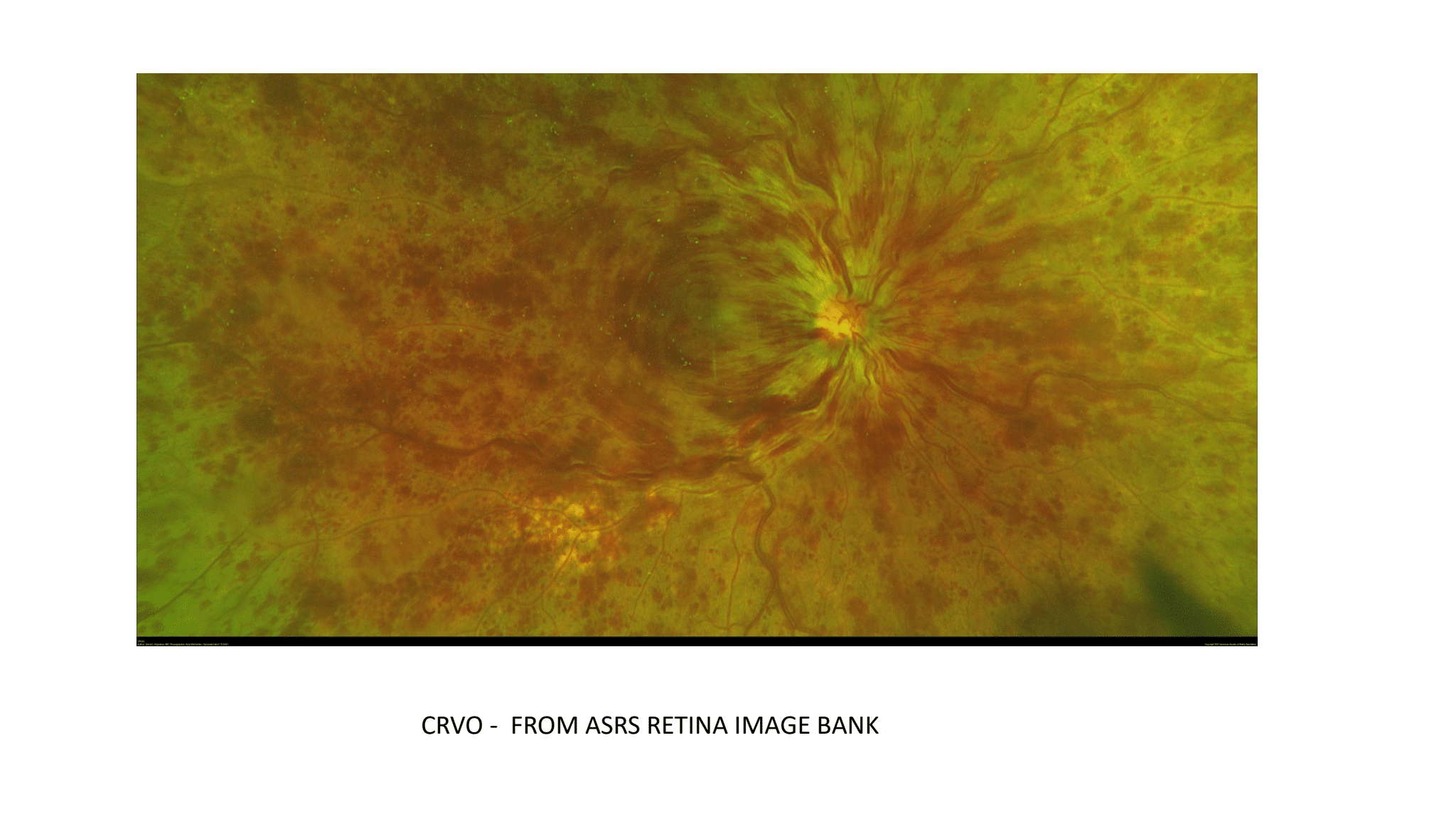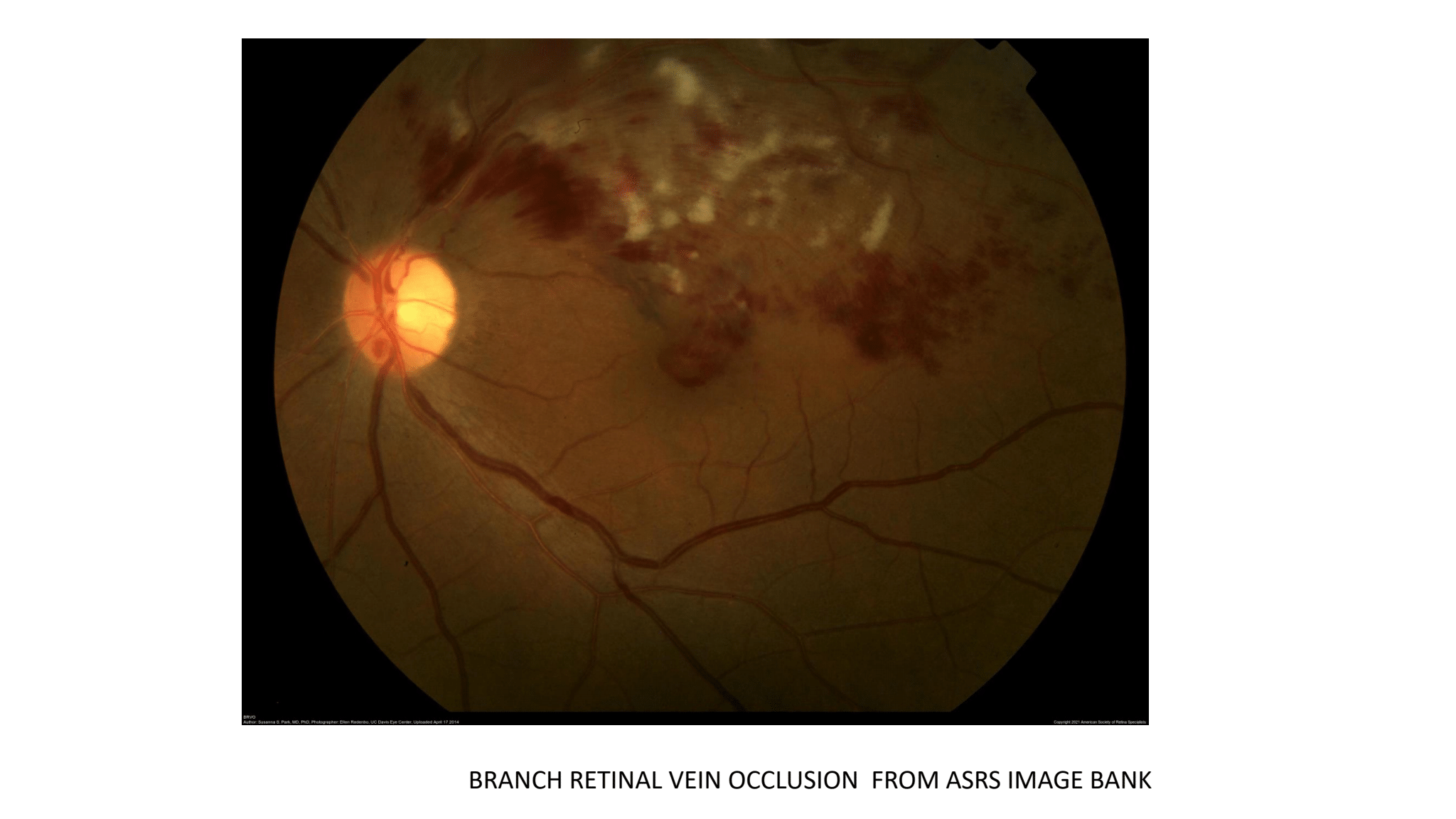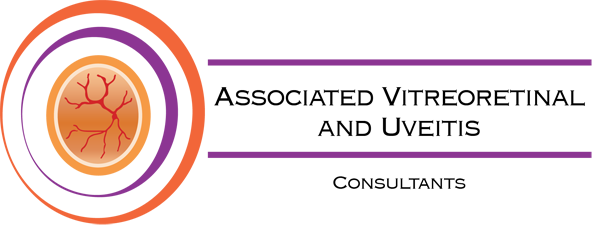Branch and Central Retinal Vein Occlusion
 The retina has arteries that bring blood into the eye, and veins that drain blood out. Sometimes, the main vein draining the blood from the eye can become blocked, a central retinal vein occlusion (CRVO). Or, a smaller vein can become blocked, a branch retinal vein occlusion (BRVO). When blood flow is blocked, pressure builds up within the small vessels in the retina and swelling (edema) of the central retina (the macula) can develop. It’s this swelling that can cause vision loss.
The retina has arteries that bring blood into the eye, and veins that drain blood out. Sometimes, the main vein draining the blood from the eye can become blocked, a central retinal vein occlusion (CRVO). Or, a smaller vein can become blocked, a branch retinal vein occlusion (BRVO). When blood flow is blocked, pressure builds up within the small vessels in the retina and swelling (edema) of the central retina (the macula) can develop. It’s this swelling that can cause vision loss.
Branch vein occlusions are more common in patients who are diabetic, hypertensive, or have hardening of the arteries or elevated cholesterol or triglycerides. Central vein occlusions are more common in patients who have glaucoma, high blood pressure, or diabetes. Most patients who have these conditions already have other vascular risk factors such as coronary artery disease, hypertension or history of previous stroke. Young patients who have these conditions sometimes have underlying metabolic or genetic clotting abnormalities. These vein occlusions can sometimes be mild but occasionally are severe and can cause severe vision loss and, in some cases, blindness.
 Vein occlusions can be treated with the use of intraocular injections of special medications such as corticosteroids or anti-VEGF (vascular endothelial growth factor) medications. In addition, laser treatment as well as a possible surgery may be indicated in some cases. Patients usually experience a sudden blurring or loss of vision. Treatment results in improved vision but continued treatment may be needed over a course of 24-48 months. When the vein occlusions are severe they can loss of blood flow to the retina, resulting in severe vision loss and much greater rates of complications such as neovascular glaucoma, a kind of glaucoma that can result in blindness very rapidly. Fortunately, with modern treatment, even these very late stages of disease can be treated to prevent loss of the eye and limit the amount of vision loss. Visual prognosis for these conditions is variable. Your doctor will discuss with you the treatment options available for the specific vein occlusion seen in your eye.
Vein occlusions can be treated with the use of intraocular injections of special medications such as corticosteroids or anti-VEGF (vascular endothelial growth factor) medications. In addition, laser treatment as well as a possible surgery may be indicated in some cases. Patients usually experience a sudden blurring or loss of vision. Treatment results in improved vision but continued treatment may be needed over a course of 24-48 months. When the vein occlusions are severe they can loss of blood flow to the retina, resulting in severe vision loss and much greater rates of complications such as neovascular glaucoma, a kind of glaucoma that can result in blindness very rapidly. Fortunately, with modern treatment, even these very late stages of disease can be treated to prevent loss of the eye and limit the amount of vision loss. Visual prognosis for these conditions is variable. Your doctor will discuss with you the treatment options available for the specific vein occlusion seen in your eye.
